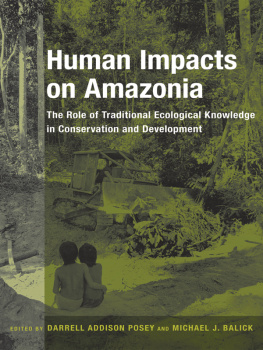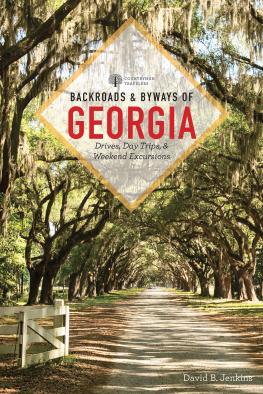
Traditional Ecological Knowledge in Georgia
This multidisciplinary book develops a synthesis of traditional ecological knowledge in the Caucasus region in Georgia a hotspot of natural and cultural diversity.
Traditional ecological knowledge connects the knowledge of natural phenomena with the culture of a given human society, and Georgia is an excellent case study for observing this knowledge. The Caucasus region in particular is notable for its natural and ethnocultural diversity, and this book weaves together the disciplines of history, environment, and ethnography to develop a synthesis of traditional ecological knowledge. Tracing the history of Georgia through two main phases, the hunter and gatherer bands and the agrarian phase, the author examines important events such as the breeding of naked hexaploid wheat, the domestication of the grapevine, and the development of viticulture. Utilising this historic perspective allows us to clearly see how traditional ecological knowledge has increased in sophistication during the long prehistory of Georgia, and most importantly, how this type of knowledge underpins the social and economic progress of traditional societies, not only in Georgia, but throughout the world.
This book will be of great relevance to interdisciplinary-minded scholars and students who have an interest in the relationships between nature and human society, including anthropologists, historians, biologists, ecologists, botanists, sociologists, and ethnographers.
Zaal Kikvidze is Professor of Ecology and Director at the Institute of Ethnobiology and Socioecology at the Ilia State University in Tbilisi, Georgia.
Routledge Focus on Environment and Sustainability
Jainism and Environmental Politics
Aidan Rankin
Australian Climate Policy and Diplomacy
Government-Industry Discourses
Ben L. Parr
Reframing Energy Access
Insights from The Gambia
Anne Schiffer
Climate and Energy Politics in Poland
Debating Carbon Dioxide and Shale Gas
Aleksandra Lis
Sustainable Community Movement Organizations
Solidarity Economies and Rhizomatic Practices
Edited by Francesca Forno and Richard R. Weiner
Climate Change Ethics for an Endangered World
Thom Brooks
The Emerging Global Consensus on Climate Change and Human Mobility
Mostafa M Naser
Traditional Ecological Knowledge in Georgia
A Short History of the Caucasus
Zaal Kikvidze
For more information about this series, please visit: https://www.routledge.com/Routledge-Focus-on-Environment-and-Sustainability/book-series/RFES
Traditional Ecological Knowledge in Georgia
A Short History of the Caucasus
Zaal Kikvidze
First published 2021
by Routledge
2 Park Square, Milton Park, Abingdon, Oxon OX14 4RN
and by Routledge
52 Vanderbilt Avenue, New York, NY 10017
Routledge is an imprint of the Taylor & Francis Group, an informa business.
2021 Zaal Kikvidze
The right of Zaal Kikvidze to be identified as author of this work has been asserted by them in accordance with sections 77 and 78 of the Copyright, Designs and Patents Act 1988.
All rights reserved. No part of this book may be reprinted or reproduced or utilised in any form or by any electronic, mechanical, or other means, now known or hereafter invented, including photocopying and recording, or in any information storage or retrieval system, without permission in writing from the publishers.
Trademark notice : Product or corporate names may be trademarks or registered trademarks and are used only for identification and explanation without intent to infringe.
British Library Cataloguing-in-Publication Data
A catalogue record for this book is available from the British Library
Library of Congress Cataloging-in-Publication Data
A catalog record has been requested for this book
ISBN: 978-0-367-67490-8 (hbk)
ISBN: 978-1-003-13153-3 (ebk)
Typeset in Times New Roman
by Deanta Global Publishing Services, Chennai, India
I dedicate this book to my family.
Contents
PART 1
Introduction
PART 2
The prehistoric evolution of traditional ecological knowledge in Georgia
PART 3
Traditional ecological knowledge: the historical record
I am grateful to my colleagues Rainer Bussmann, Narel Paniagua Sambrana, David Kikodze, and Shalva Sikharulidze for exciting and fruitful discussions about traditional ecological knowledge and their encouragement for pushing forth this project. I appreciate the support that I constantly feel from the staff and administration of Ilia State University. Finally, I am indebted to Kate Hughes for her help while preparing this manuscript.
This book deals with the history of traditional knowledge documented in Georgia, the Caucasus a hotspot of natural and cultural diversity with an exceptionally long history. This makes studying the history of relationships between nature and humans in Georgia especially appealing and motivated my writing of this book.
An exhaustive representation of materials relevant to the history of traditional ecological knowledge in Georgia is beyond the scope of this book. My aim, rather, is to provide an introduction to the key elements and major stages of development.
Traditional knowledge and history
Traditional knowledge (sometimes referred to as indigenous knowledge or local knowledge) is a complex notion. In a broad sense, it encompasses local cultural traditions including the ways ecosystem services and natural resources (among them animals, plants, minerals, hunting grounds, water bodies for fishing) are used. Traditional knowledge means that a given group of people are able to recognise certain elements of nature (living beings, rocks, springs, rivers, forests) and utilise them as resources (food, medicine, materials for toolmaking, construction, decoration, ritual items, adornments) or avoid damage in case of threat (e.g., dangerous predators, poisonous plants) in a specific way to achieve a specific goal. Therefore, traditional knowledge basically refers to the knowledge and skills, both tacit and learned from parents, elders, or peers, of recognising and utilising plants, animals, and ecosystem properties. Transferring knowledge and skills from generation to generation also strongly involves the culture of traditional communities, including their lore, arts, and worldview.
A historical approach and a reconstruction of how traditional knowledge emerged and evolved become crucial for understanding the structure and importance of existing traditional knowledge in a given culture and is made possible through analyses of archaeological materials, ethnographic surveys, and historical records. These approaches complement each other well, although in a somewhat unexpected way. Collection of data on traditional knowledge, is, of course, mostly achieved using the methods of ethnography and sociology, yet the source of this highly sought after information the respondents who still retain and use traditional knowledge and skills are declining rapidly in number as traditional agriculture gives way to an industrial one, and the rural population migrates en masse to cities. But, on the other hand, archaeological databases are only increasing over time. It is evident that the shift in relative importance from ethnographic data to archaeological artefacts will be inevitable in the long term, at least in order to reconstruct already abandoned traditional practices of subsistence. Our priority today, therefore, is to join archaeological materials and their ethnographic interpretations comprehensively into clear concepts and models, so that they can later be usefully extrapolated in the reconstruction of past traditional practices. Perhaps this problem is not specific to Georgia but rather represents a global trend. Although I myself am not aware of any study that reviews this type of reconstruction, there is a body of work that gives good examples of the use of archaeological materials for ethnographic reconstruction: B. Kuftin (1941, p.8990) interpreted the scenes on the Trialeti Chalice as a ritual of fertility worship; Jason Kikvidze (1972; 1976) reviewed fertility cults of prehistoric agrarian societies in Georgia based on archaeological materials; more recently, Irakli Surguladze (1993; 2003) has analysed ancient astral symbols conserved in traditional crafts. Hopefully, the task of linking traditional knowledge with archaeological and other empirical materials will be pursued more rigorously in future studies.











